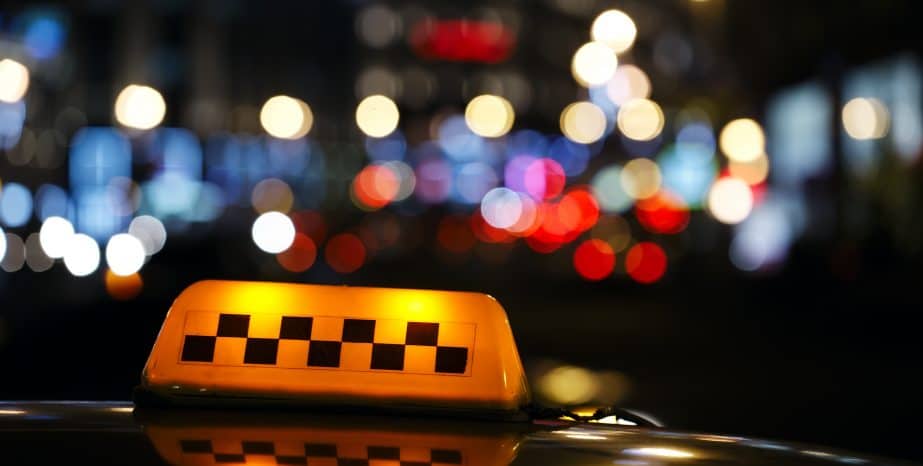
A Closer Look at Taxi Accidents in California
Since Lyft, Uber, and other ridesharing companies have decimated the taxi industry in Los Angeles, the city’s Transportation Department recently unveiled plans to modernize and expand this transportation sector. “Our taxi reforms will not only help us hold companies accountable for meeting our policy goals, but they also allow us to support a key industry and ensure it remains competitive in this quickly changing landscape,” a spokesperson said.
A sudden taxi expansion probably means more drivers on the road who have less experience. Additionally, the LADOT’s reforms include app-based taxi services. That probably means an increase in distracted driving incidents.
Taxi accidents are quite unlike other car crash claims. There are complex duty and liability questions to address. So, if you were hurt in a taxi accident, an experienced Los Angeles personal injury attorney is essential. Unless your attorney thoroughly evaluates your case from every possible angle, you may end up settling for less.
Duty of Care
Taxi drivers are professional drivers. They must also complete additional requirements to earn their commercial drivers’ licenses. For these reasons, these drivers have a higher duty of care than other motorists.
Most noncommercial drivers have a duty of reasonable care. Essentially, they must obey the rules of the road and avoid accidents if possible. But taxi drivers and most other commercial operators have a duty of utmost care in California. Passengers have absolutely no control over the vehicles they ride in or the company which provides the transportation. As a result, even a slight amount of negligence could support a claim for damages.
We mentioned distracted driving above. If the defendant was a noncommercial driver, most jurors would not consider checking a GPS navigation device to be negligent, even though this behavior is technically distracted driving. But a commercial operator is different, because of the aforementioned duty of utmost care. There is no such thing as being in the wrong place at the wrong time in this context. There is only taking the utmost care of your passengers or legal negligence.
Establishing Liability
To prove negligence in court, a victim/plaintiff may use the ordinary negligence doctrine or the negligence per se rule. Once again, distracted driving is a good illustration.
It’s legal for California drivers to use hands-free devices while they are behind the wheel. But this use is negligent, in the ordinary sense of the word. According to one study, driving while using a hands-free speakerphone is as bad as driving drunk. Hands-free gadgets are visually and cognitively distracting. Users take their eyes off the road and their minds off driving. Furthermore, these devices give motorists a false sense of security, so they take unnecessary risks.
Negligence per se, which is the violation of a safety law, is a possibility as well in these cases. California has an extremely broad hands-free law. It’s usually illegal to hold a cell phone while driving. If a driver violates a safety law, and that violation substantially causes injury, that motorist could be liable for damages as a matter of law.
The damages in a car crash claim usually include compensation for economic losses, such as medical bills, and noneconomic losses, such as pain and suffering.
Drivers are legally responsible for these damages. A third party, such as the driver’s employer, could be financially responsible for them. The respondeat superior doctrine applies if the driver was an employee who was acting within the scope of employment.
Most taxi drivers are independent contractors for most purposes. But these drivers are employees for negligence purposes. The taxi company controls its own drivers. Furthermore, an act that benefits the employer in any way is within the scope of employment. If a taxi driver has no passenger and causes an accident, respondeat superior could still apply. The advertisements on the taxi benefit the employer.
These liability claims usually settle out of court. Such settlements benefit victim/plaintiffs in several ways. Settlements end cases sooner, so victims get their checks sooner. Furthermore, an out-of-court settlement gives victims much more control over the outcome and avoids a risky trial.
Even though most claims do not go to trial, an attorney must prepare as if the case will go all the way. This preparation includes diligent evidence collection and other processes which are often time-consuming. But the long way is the only way to ensure maximum compensation for victims. Taxi accident victims are usually entitled to significant compensation. For a free consultation with an experienced personal injury attorney in Los Angeles, contact the Law Offices of Eslamboly Hakim. You have a limited amount of time to act.
Photo Credit: Storyblocks
Sharona Hakim
Sharona Eslamboly Hakim, Esq. is a successful personal injury attorney and the principal of the Law Offices of Eslamboly Hakim firm in Beverly Hills, California.








